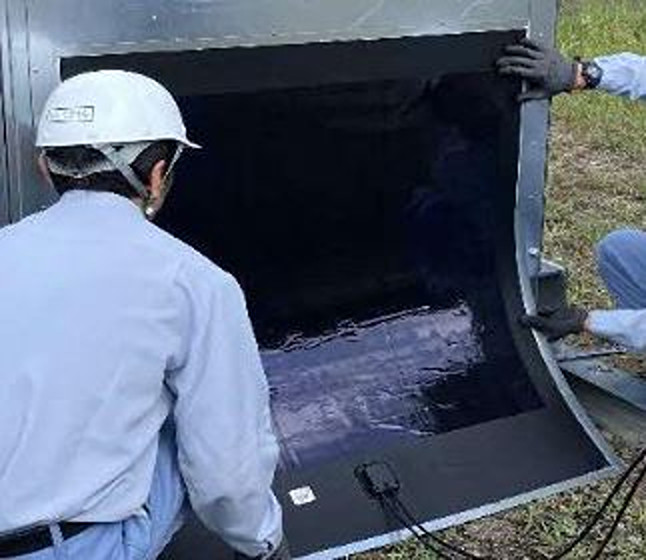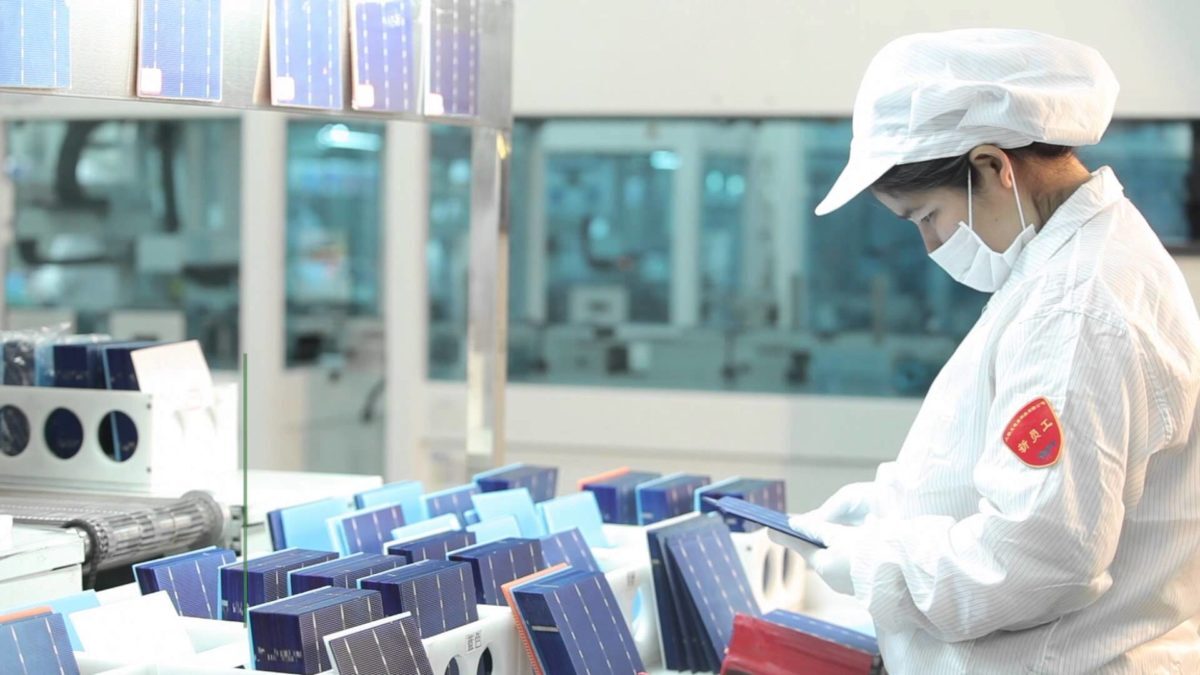Central Japan Railway, which operates in Japan's Chubu region, has announced plans to test flexible perovskite solar panels on noise barriers.
The company is working with Sekisui Chemical, a Japanese plastics manufacturer that recently commissioned a 100 MW perovskite solar cell production line.
The first pilot projects will be deployed along the Tokaido Shinkansen line, an area with high solar radiation.
“By using flexible solar cells in places where it was previously difficult to install conventional solar panels, it will be possible to generate electricity from renewable energy over a wider area,” the railway operator said in a statement, adding that the energy generated by the solar arrays will be supplied to nearby train stations.
“As noise barriers have a long lifespan, we have developed a prototype with perovskite solar cells that can be easily attached and detached with the assumption that only the solar cells will be replaced during maintenance,” the company added, noting that the first prototype will be built at its Komaki Research Facility, where it will conduct initial tests. “We will apply vibrations and wind pressure simulating the passage of a train to consider a structure that can withstand the railway environment and verify the impact on power generation performance.”
In late December 2024, Sekisui Chemical said it would invest JPY 90 billion ($570.64 million) in a perovskite solar production line with an initial capacity of 100 MW, set to begin operations in 2027. It also plans to commercialize its flexible perovskite solar panel technology, produced at its existing facilities, in 2025.
The investment includes the JPY 25 billion acquisition of a factory owned by Japanese electronics manufacturer Sharp in Sakai, Osaka prefecture. The acquisition includes buildings, power supply, cooling, and facilities.
In late November, Japan's Ministry of Economy, Trade and Industry (METI) said that it plans to deploy around 20 GW of new PV systems based on perovskite solar cell technology by 2040.
The ministry said it also plans to support other Japanese manufacturers in producing perovskite solar module technologies.
This content is protected by copyright and may not be reused. If you want to cooperate with us and would like to reuse some of our content, please contact: editors@pv-magazine.com.




By submitting this form you agree to pv magazine using your data for the purposes of publishing your comment.
Your personal data will only be disclosed or otherwise transmitted to third parties for the purposes of spam filtering or if this is necessary for technical maintenance of the website. Any other transfer to third parties will not take place unless this is justified on the basis of applicable data protection regulations or if pv magazine is legally obliged to do so.
You may revoke this consent at any time with effect for the future, in which case your personal data will be deleted immediately. Otherwise, your data will be deleted if pv magazine has processed your request or the purpose of data storage is fulfilled.
Further information on data privacy can be found in our Data Protection Policy.